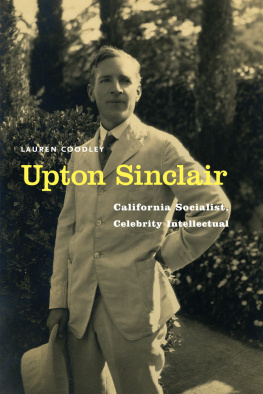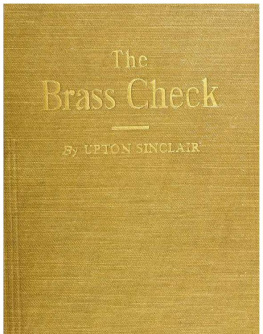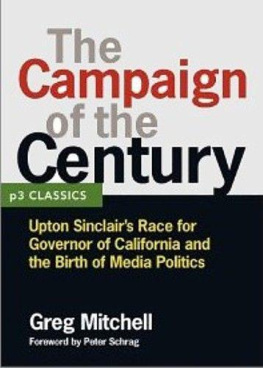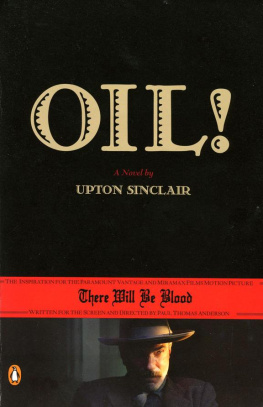Upton Sinclair - On the Soviet Union
Here you can read online Upton Sinclair - On the Soviet Union full text of the book (entire story) in english for free. Download pdf and epub, get meaning, cover and reviews about this ebook. City: New York City, year: 1938, publisher: Weekly Masses, genre: History. Description of the work, (preface) as well as reviews are available. Best literature library LitArk.com created for fans of good reading and offers a wide selection of genres:
Romance novel
Science fiction
Adventure
Detective
Science
History
Home and family
Prose
Art
Politics
Computer
Non-fiction
Religion
Business
Children
Humor
Choose a favorite category and find really read worthwhile books. Enjoy immersion in the world of imagination, feel the emotions of the characters or learn something new for yourself, make an fascinating discovery.

- Book:On the Soviet Union
- Author:
- Publisher:Weekly Masses
- Genre:
- Year:1938
- City:New York City
- Rating:4 / 5
- Favourites:Add to favourites
- Your mark:
- 80
- 1
- 2
- 3
- 4
- 5
On the Soviet Union: summary, description and annotation
We offer to read an annotation, description, summary or preface (depends on what the author of the book "On the Soviet Union" wrote himself). If you haven't found the necessary information about the book — write in the comments, we will try to find it.
On the Soviet Union — read online for free the complete book (whole text) full work
Below is the text of the book, divided by pages. System saving the place of the last page read, allows you to conveniently read the book "On the Soviet Union" online for free, without having to search again every time where you left off. Put a bookmark, and you can go to the page where you finished reading at any time.
Font size:
Interval:
Bookmark:
This pamphlet is reprinted from the New Masses of March 8, 1938
Published by Weekly Masses Co., Inc
31 East 27th Street
New York City
Published April 1938
Printed in the U.S.A.
The following letter by Upton Sinclair was written in reply to an open letter addressed to him by Eugene Lyons.
We are glad to present to our readers Mr. Sinclair's eloquent answer to Lyonsthat highly moral "Socialist" who is devoting all his time to slandering the Soviet Union and who, while a correspondent there, did not disdain to speculate on the "black horse" and to smuggle valuable art objects out of the country, thus robbing the Soviet workers and peasants of the very gold which might have been used for improving their "terrible" conditions.
We could demur with regard to a number of points made by Mr. Sinclair. But the general spirit of his letter is so essentially human and sound that we prefer not to dwell on those statementsof minor importanceto which we take exception. We must, however, draw attention to two major historical errors into which Mr. Sinclair falls.
One is his erroneous description of the Bolshevik revolution as having been made by "a little group of revolutionists who managed to seize power." The October Revolution was a mass revolution of workers, peasants and soldiers; the Bolshevik Party at that time numbered several hundred thousand members, who were the vanguard of the broad masses in their democratic struggle for peace, land and freedom.
Second, Sinclair erroneously places the "birth of Trotskyism" as an event subsequent to the adoption of the People's Front policy by the Seventh Congress of the Communist International in 1935. Trotskyism is an old disease. Its recrudescence in its most virulent form of sabotage, treason and terror as traced in the Soviet Union, according to the confessions of the Trotskyites themselves at the Moscow trials, goes back to the beginning of this decade, i.e., the difficult years when the Soviet Union was engaged in the first major advance toward socialism in city and country. Kirov was assassinated in December, 1934.
The Editor.
My Dear Eugene Lyons:
I have your open letter on the subject of my views on Russia. Of course I shall not "misunderstand the spirit of it." You have a perfect right to criticize my published ideas, and I am interested in your reactions. But I am not convinced, and will tell you why.
The Russian people suffered many centuries of oppression, they had no democratic institutions, and they did not know what we call "liberty." Modern ideas were kept from them, and the great bulk of the people were degraded peasants only recently out of serfdom, besotted with drink and sunk in superstition. After three years of dreadful suffering and defeat in war, a little group of revolutionists who believed in collectivism managed to seize power. I did not believe they could hold it for six months, but they have managed to hold it for twenty years. My error in judgment makes me humble about giving them advice now.
The little group of revolutionists have been enforcing their collectivist ideas upon a hundred and seventy million people. At the same time they have been giving these people education of a sort. You doubt the benefits of this education, saying that "only words written by the ruling clique may be read." Will you really defend such a statement, or is it merely a bit of rhetoric? More than three million copies of my books have been translated and published in Russia. They have recently circulated something life half a million copies of No Pasaran, and are now proceeding to do the same with The Flivver King. Naturally, this inclines me somewhat in their favor; but I hasten to add that they have also circulated many more million copies of the works of Tolstoi and of Pushkin, to say nothing of Marx and Engels. How many students have come out of their high schools and colleges I do not happen to know, but it must be many millions in the course of twenty years. You appear to believe that all the minds of all these persons are entirely enslaved; but I am unable to believe this, and I think that if the ruling group in Russia has committed a "betrayal of basic principles of socialism, workers' democracy," the educated workers will find it out in the course of time and will find a way to get that which has elaborately been promised to them for the past twenty years.
Let us return to our Russian history. The tree years of foreign war were followed by a year of revolution and several years of civil war, during which most of the resources of Russia were destroyed and an extreme fanaticism was begotten. Personally, I never permit myself to think about Russian affairs without remembering those years of anguish and the fury of passion which they awakened in the hearts of the struggling workers. Defending themselves against world capitalism represented by a score of nations, including the United States of America, the Russian workers learned to hate counter-revolutionary conspiracies and to put them down. Even in our comparatively peaceful America I also learned something about capitalist counter-revolution and the infamies to which it will resort to defend itself and its privileges. I am never going to forget what I learned, and it enabled me to understand the determination of the Russian people to defend their regime.
From my point of view, the Russians have been at war during the past twenty years. It has been not merely a war of blockade, of intrigue and sabotage and spying and wholesale lying, it has also been a preparation against military attack, a mere lull between battles. I have known for twenty years that the Russians were going to be attacked again whenever reaction felt that it had the power. I have told them that on every occasion and have never blamed them for defending themselves and preparing for further defense. I understand that their political liberties in the meantime have been and could be only such as are possible for a people at war; and if you remember the years 1917-1920 in our own country, you know that they are not the ideal civil liberties such as we all hope to enjoy in the cooperative commonwealth of the future.
And now have come Mussolini, and then Hitler, and then the Mikado. I used to be asked, during our EPIC campaign, to define fascism, and my answer was "Fascism is capitalism plus murder." A year or more ago, addressing the Western Writers' Congress, I made the statement that "Al Capone is a scholar, a statesman and a gentleman compared with the men who are running Italy and Germany today." The events which have come to our unhappy world since that time caused me to add Franco and the Japanese gangsters to that list. Whatever you may think about them, you can hardly dispute the fact that Russia is for all practical purposes at war today. Russian technicians are helping the democratic people of Spain to defend their existence. Russian technicians are helping the people of China to the same end. Russia is fighting not merely Franco, but Hitler and Mussolini in Spain. And I take it you will agree with me that if the reactionaries can have their way in Spain and in China, they will be that much nearer to their final goal, the destruction of collectivist institutions in the Soviet Union. Hitler has told us quite frankly that he intends to have the Ukraine, and the young Japanese militarists have been no less frank on the subject of the eastern half of Siberia.
Again and again Russia came into the conference of Europe and proposed complete disarmament. Our reactionary newspaper columnists are quite sure that this was a bluff; but what a simple matter it is to call a bluff if you have the cards! Why didn't the war lords of the militarist nations accept Litvinov's propositions? Why didn't they pretend to accept them? The answer is because every one of them understood clearly that a collectivist economy can get along without colonies and foreign trade, whereas a profit economy must have these things and must increase them, and therefore is driven continually to fresh aggressions under penalty of revolution at home.
Next pageFont size:
Interval:
Bookmark:
Similar books «On the Soviet Union»
Look at similar books to On the Soviet Union. We have selected literature similar in name and meaning in the hope of providing readers with more options to find new, interesting, not yet read works.
Discussion, reviews of the book On the Soviet Union and just readers' own opinions. Leave your comments, write what you think about the work, its meaning or the main characters. Specify what exactly you liked and what you didn't like, and why you think so.







